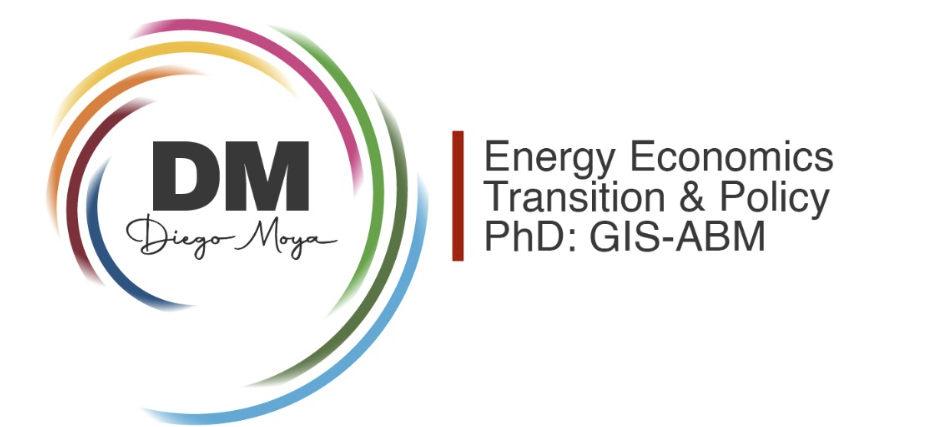ENERGY MODELLING, ECONOMICS, TRANSITION, AND POLICY ANALYSIS

I have developed a climate-energy-economic model that captures (i) the spatio-temporal dimension; (ii) transparency and reproducibility; (iii) complexity across sectors; and (iv) the human dimension. I have systematically developed a Framework for Geospatial Agent-Based Modelling, with a spatially-resolved and temporally-explicit agent definition, using historical, empirical, and analytical high-resolution spatiotemporal data and non-spatiotemporal data
This is not currently available such framework to stakeholders of the climate-energy-economy system. The framework integrates Geospatial Big Data Analytics and agent-based modelling to define so-called Spatial Agents under five components of attributes. These complex agent components are heterogeneity, diversity, evolution, decision-making process, and exogenous constraints (e.g., carbon tax schemes, GDP growth, investment goals).
I found that these components have been deliberately omitted by the perfectionist theoretical notion of a representative homogenous agent with infinite perfect foresight and hyper-rational expectations of traditional models that use Neoclassical Economic foundations.
